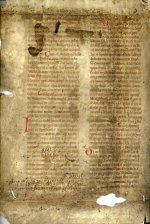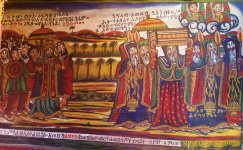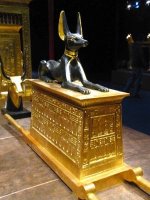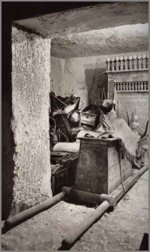Crow
Silver Member
- Jan 28, 2005
- 3,723
- 10,355
- Detector(s) used
- ONES THAT GO BEEP! :-)
- Primary Interest:
- Other
Gidday Kanacki
Franklin raised an interesting point.
In the Second Book of the Maccabees 2:4-8 claiming that the prophet Jeremiah rescued the Ark of the Covenant and hid it in a secret cave under Mount Nebo in modern-day Jordan. The full passage reads as follows.....
“It was also in the same document that the prophet, having received an oracle, ordered that the tent and the ark should follow with him, and that he went out to the mountain where Moses had gone up and had seen the inheritance of God [i.e. Mount Nebo in modern-day Jordan]. Jeremiah came and found a cave-dwelling, and he brought there the tent and the ark and the altar of incense; then he sealed up the entrance. Some of those who followed him came up intending to mark the way, but could not find it. When Jeremiah learned of it, he rebuked them and declared: ‘The place shall remain unknown until God gathers his people together again and shows his mercy. Then the Lord will disclose these things, and the glory of the Lord and the cloud will appear, as they were shown in the case of Moses, and as Solomon asked that the place should be specially consecrated.'”
Crow
Franklin raised an interesting point.
In the Second Book of the Maccabees 2:4-8 claiming that the prophet Jeremiah rescued the Ark of the Covenant and hid it in a secret cave under Mount Nebo in modern-day Jordan. The full passage reads as follows.....
“It was also in the same document that the prophet, having received an oracle, ordered that the tent and the ark should follow with him, and that he went out to the mountain where Moses had gone up and had seen the inheritance of God [i.e. Mount Nebo in modern-day Jordan]. Jeremiah came and found a cave-dwelling, and he brought there the tent and the ark and the altar of incense; then he sealed up the entrance. Some of those who followed him came up intending to mark the way, but could not find it. When Jeremiah learned of it, he rebuked them and declared: ‘The place shall remain unknown until God gathers his people together again and shows his mercy. Then the Lord will disclose these things, and the glory of the Lord and the cloud will appear, as they were shown in the case of Moses, and as Solomon asked that the place should be specially consecrated.'”
Crow








